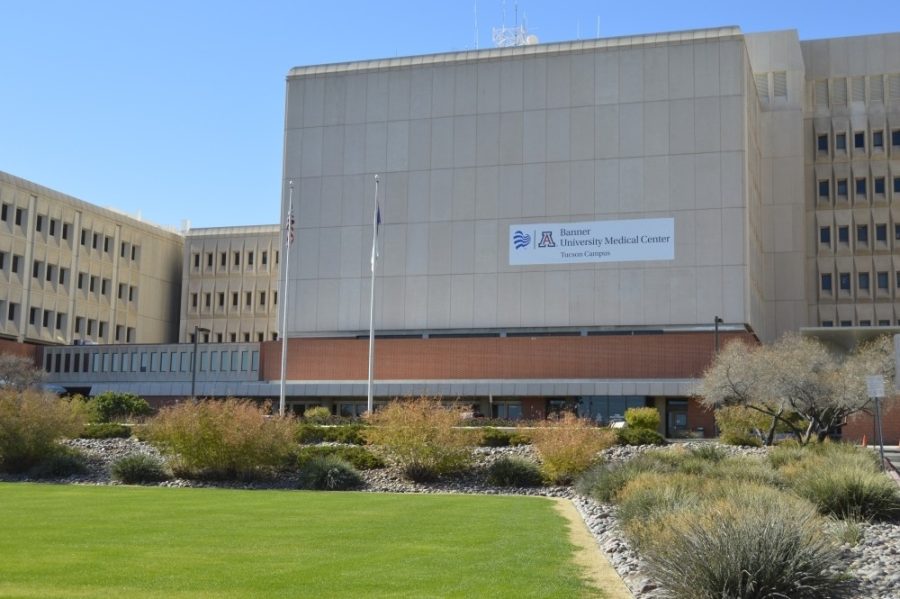The University of Arizona held COVID-19 webinars to discuss the challenges of confinement, share resources and to provide guidance about mental health. The first webinar was held on Friday, July 17. This webinar discussed anxiety and depression during COVID-19. The hosts of the webinar were Patricia Harrison-Monroe and Gustavo J. Perez.
The second webinar was held on Friday, July 24. This webinar discussed impacts on couples and families during COVID-19. The hosts of the webinar were Alison Coelho and Dr. Noshene Ranjbar.
Coelho addressed some things people can do to help their loved ones experiencing mental health issues.
“Acknowledging that everyone is stressed out is the most important piece and understanding that we are all supposed to be stressed out,” Coelho said. “Telling ourselves we are not supposed to be as anxious as we are really prevents us from getting through this in a healthy and functional way.”
An important part is reaching out when you need to reach out. Harrison-Monroe explained in the webinar, the focus right now is on physical health, but the mind and body go hand in hand, so there also needs to be a focus on mental health.
Perez stated that it is important that we ask ourselves this question: How are we doing? If you are feeling depressed and anxious know you are not alone. Perez discussed how we as a society have not talked enough about mental health and there is a stigma around communicating your struggles. We will all struggle with COVID-19 in private in different ways.
RELATED: Preserving your mental and physical wellness during freshman year at UA
Data from the webinar shows that 36% of people in the U.S. are reporting symptoms of depression, anxiety and trauma responses. Data also shows that 47% of people that sheltered in place experienced stress, discussed Coelho during the webinar.
School closures have affected children and families in many different ways. 1.5 billion students around the world are now online and don’t have resources that schools offered. For a lot of students, school counselors were the only access they had to talk about mental health. Currently, suicide in adolescents and young adults is the second leading cause of death.
During the webinar, Ranjbar played a short film called “Numb,” which captures the experience students have during the time of COVID-19. After the video, Ranjbar explained we don’t really know what’s going on with another person, even our child or our partner.
Coelho shared a story of a student she talked to about mental health during the webinar. The girl explained to Coelho that she was used to being around people every day and she didn’t realize how much she socialized. She would see 30 or 35 different faces in each of her classes. She was shocked by this because she considered herself an introvert and now she sees the same faces every day.
Students have many concerns because of COVID-19. Students are concerned about falling behind in school. Students are facing situations of missing their grandparents, but they also don’t want to risk getting them sick.
Parents struggle between work, negotiating and getting used to changes. Data from the webinar shows that 41.5% of adults report income impacts, having to take time off, families restricting money on food or lost jobs. Data also shows that 27% of adults said they maxed out credit cards or withdrew most of their savings. Families — especially minority families — took a toll on healthcare because they restrict the healthcare they receive in order to save money.
Throughout the webinar, they discussed how couples and families have changed because of COVID-19. One part focused on how first dates are now a concern due to bars, Starbucks and typical dating spots being closed. First dates now have to happen at each other’s houses and a lot of people don’t want to invite people they never really met at their house.
Another part is addressing couples’ and families’ concerns with adjusting to everyone being home. Coelho discussed some tips and resources for couples and families to help get through these difficult times. She recommended creating a routine with dedicated spaces and tasks, understanding it is okay to do things separately from others and communicating with your partners about how you are feeling.
Since everyone is home all the time, a lot of people are noticing their home appliances are breaking more often. That adds another strain on people because they have to spend more money on these big appliances.
With everyone being home there has also been an increase in suicide, sexual assault and domestic violence. As well, the older population is at high risk for loneliness.
One important topic Ranjbar covered was getting to know ourselves to allow our systems to calm down in order to validate that active listening. We are less compassionate with ourselves then we are with others. We need to learn to also be compassionate with ourselves. You can access the webinars here.
Follow Jillian Bartsch on Twitter









